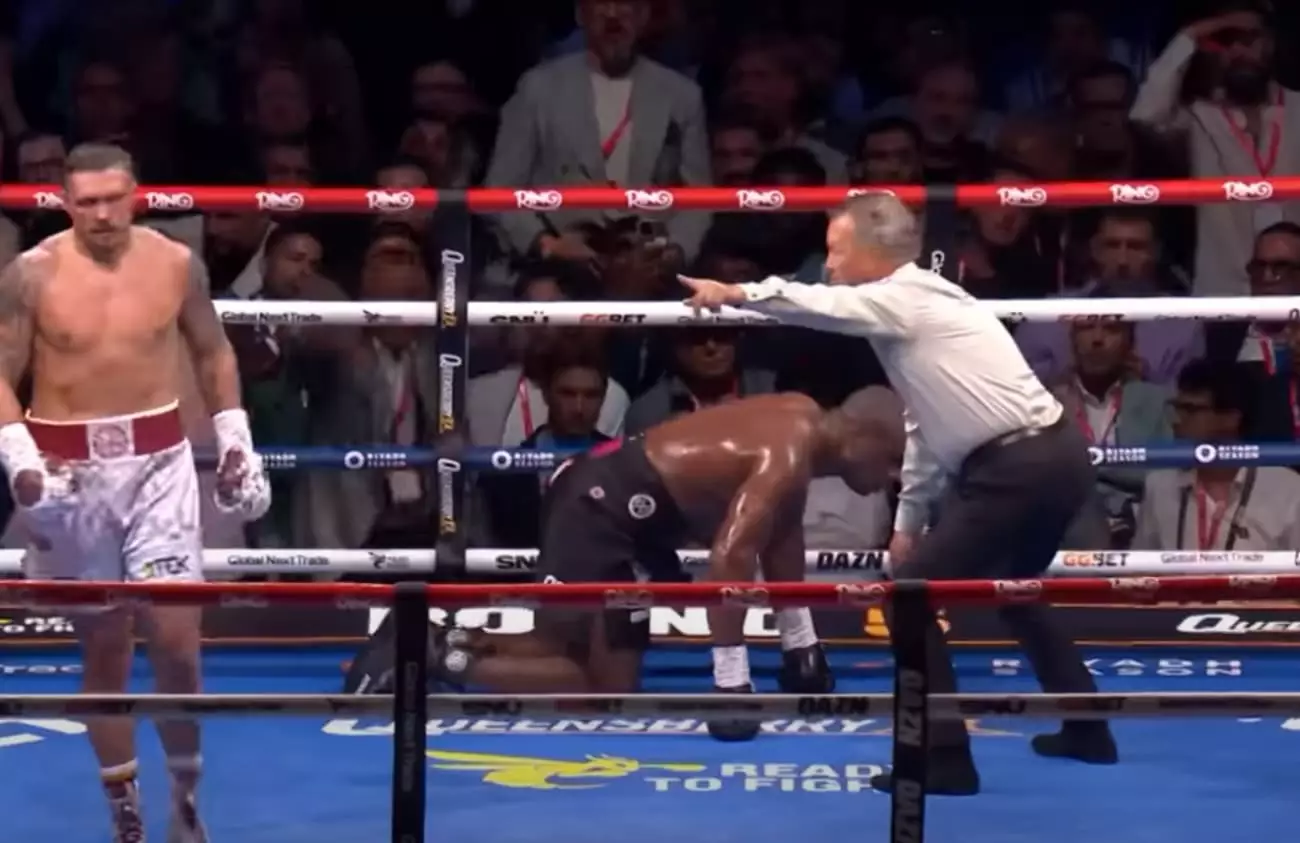In the gritty world of boxing, the term “quitter” is wielded as a weapon more than an accusation—it’s a label loaded with moral judgment and social expectation. Spectators and critics alike often judge fighters harshly for their decisions to cease fighting, especially when the stakes are high. But beneath this surface-level condemnation lies a complex web of physical endurance, mental toughness, and strategic survival. The recent debate surrounding Daniel Dubois’s performance against Oleksandr Usyk encapsulates this tension vividly, revealing how societal pressure to “stand and fight” can distort the true nature of a fighter’s decision-making process.
Many view the act of going down or stopping a fight as a failure of character, a sign of weakness that undermines the very essence of masculinity and perseverance. However, this simplistic perspective ignores the brutal reality faced by fighters at critical moments. When Dubois was knocked down twice in the fifth round by Usyk—a technically astute and powerfully precise boxer—the immediate assumption by many was that he “quit” or “wimped out.” Critics such as Derek Chisora have expressed vehement disdain, claiming Dubois’s inability to continue was a sign of surrender, not survival.
Yet, this perspective insufficiently considers the physical toll and mental burden on a fighter in that exact moment. Being knocked down repeatedly can shatter confidence, exhaust mental stamina, and cause injury that isn’t immediately apparent. The decision to remain on the stool or to continue fighting is, in truth, an intricate balance of pain, fear, tactical calculation, and self-preservation. Reducing it to a matter of moral failure dismisses the human complexities that underpin such choices.
The Power of Perspective: Is Criticism Truly Fair in High-Stakes Boxing?
Derek Chisora’s critique of Dubois—claiming he should have fought through the adversity and not “quit”—raises the question: how fair is it to place such harsh moral standards on a fighter’s internal toll? Chisora, a seasoned veteran who’s faced his own share of tough moments, is arguably speaking from experience that is both high and bitter. His belief that Dubois might have “done better” presumes a clear-cut path to victory based on physical capability, yet ignores the internal struggles fighters battle that spectators never see.
The reality is that boxing is as much a mental sport as a physical one. A fighter’s ability to keep fighting under heavy pressure is often less about physical stamina and more about mental resilience. When Dubois was staggered and unable to retaliate effectively, it could have been a strategic retreat to prevent further injury or a sign of his awareness of his limits. Such decisions demand respect, not ridicule, especially in a sport that has historically punished fighters for retreating even when survival instinct is justified.
Furthermore, the emotional aftermath of defeat influences future performances. Dubois has already faced criticism after his loss to Usyk, and accusations of quitting can compound the psychological damage, possibly affecting his confidence and approach in subsequent fights. Viewed through this lens, labeling him a quitter oversimplifies a nuanced situation. It dismisses the reality that sometimes choosing to live and fight another day is, paradoxically, an act of courage.
The Cultural Narrative and the Heroic Myth of the Boxer
The narrative that equates perseverance with moral virtue is deeply ingrained in boxing culture. Fighters are celebrated for their toughness, their willingness to go through pain and adversity to achieve glory. While that narrative serves to inspire audiences and uphold heroic ideals, it also fosters a toxic environment where admitting weakness becomes stigmatized.
Chisora’s comments reflect this cultural tendency—to valorize continuous combat, even at the expense of a fighter’s well-being. Yet, history shows that some of boxing’s greatest champions have made the tough choice to step away when faced with insurmountable danger. Muhammad Ali, Jack Johnson, and more recent figures like Tyson Fury have all demonstrated that strategic retreat or early stoppage can be a sign of wisdom, not cowardice.
Ultimately, the criticism aimed at Dubois underscores a larger societal dilemma: the heroism myth that refuses to acknowledge human vulnerability. Fighting is inherently dangerous, and the decision to stop should not be condemned but understood as a prudent, courageous act of self-preservation. The real strength lies in knowing when to stand firm and when to acknowledge one’s limits—an insight that often distinguishes the wise from the reckless.
The debate over Dubois’s performance highlights a broader issue about how we perceive bravery and failure within high-stakes sports. It’s time to challenge the simplistic narrative that equates quitting with weakness. True courage in boxing is as much about psychological resilience and self-awareness as it is about physical toughness. Recognizing the complexity behind each fight decision can foster a healthier, more respectful sporting culture—one that values human dignity as much as victory. When the dust settles, it’s clear that wrestling with these moralities requires more than superficial judgments; it demands an acknowledgment of the profound human truths that fighters grapple with under the brightest lights and loudest crowds.

